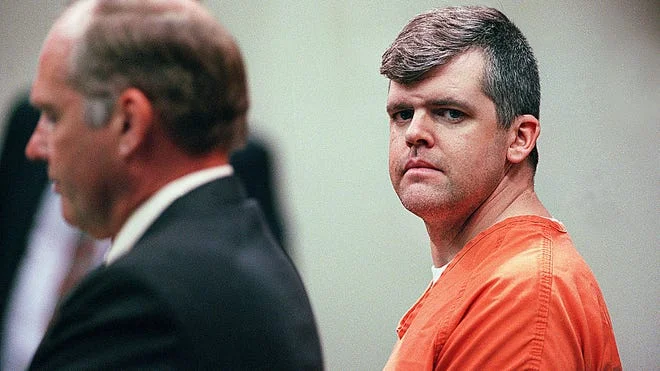
Could Mental Illness Alter the Course of Justice for a Gulf War Veteran?
In a case that has reignited debates over mental health and the death penalty, Florida prepares to execute Jeffrey Hutchinson, a Gulf War veteran convicted of a horrific quadruple murder. As the state moves forward with what could be its fourth execution this year, questions about justice, mental competency, and the long-term effects of war loom large, drawing national attention to the flaws in America's criminal justice system.
Hutchinson, 62, was found guilty in 2001 for the 1998 killings of his girlfriend, Renee Flaherty, 32, and her three young children: Geoffrey, 9; Amanda, 7; and Logan, 4. Court records detail a tragic night in Crestview, Florida, where Hutchinson, after an argument with Flaherty, left the home only to return and commit the murders with a 12-gauge shotgun. A chilling 911 call from Hutchinson himself—“I just shot my family”—led police to the scene, where they found him covered in blood, still holding the phone. Despite his claims of innocence and allegations of a government conspiracy tied to his military service, a jury delivered four convictions for first-degree murder.
Central to Hutchinson's defense and subsequent appeals has been his history as an Army Ranger exposed to the traumas of the 1990-1991 Gulf War. His attorneys argue that undiagnosed Gulf War Illness, coupled with post-traumatic stress disorder, impaired his mental state at the time of the crimes. Psychiatrist William Baumzweiger testified that Hutchinson's exposure to potential chemical agents could have triggered uncontrollable rage. However, judges have consistently rejected these claims, with a recent Florida Supreme Court ruling stating that the effects of Gulf War Illness were known during his trial and did not absolve him. As one lawyer, Chelsea Shirley, noted, 'Hutchinson lives with a decades-long delusion that he is being executed to silence his efforts,' highlighting the complexity of mental health in capital cases.
This execution, scheduled for May 1, marks Florida's fourth in 2025 under Governor Ron DeSantis, following a lull in executions from 2020-2022. It underscores ongoing tensions in the U.S. penal system, where veterans like Hutchinson face the ultimate penalty despite pleas for clemency based on service-related issues. Comparisons to other cases, such as that of Glen Rogers—set for execution later in May—reveal a pattern of rapid state-level decisions that often overlook nuanced mental health evidence. Families of the victims, including Flaherty's brothers, have shared poignant memories, emphasizing the human cost: 'Her kids were a priority,' said Wesley Elmore, painting a picture of a devoted mother and the incomprehensible terror of that fateful night.
The broader implications of Hutchinson's case raise critical questions about how society addresses veterans' mental health and the ethics of capital punishment. If carried out, this execution will add to the 107 since 1976 in Florida, fueling discussions on whether justice truly serves rehabilitation or retribution.
In the end, this story serves as a stark reminder of the intersection between war, mental illness, and the law. What does true justice look like for those scarred by service? As this case unfolds, it challenges us to reflect on these issues and consider the human elements at play. We invite readers to share their thoughts in the comments below—do mental health factors warrant a second look in death penalty cases?